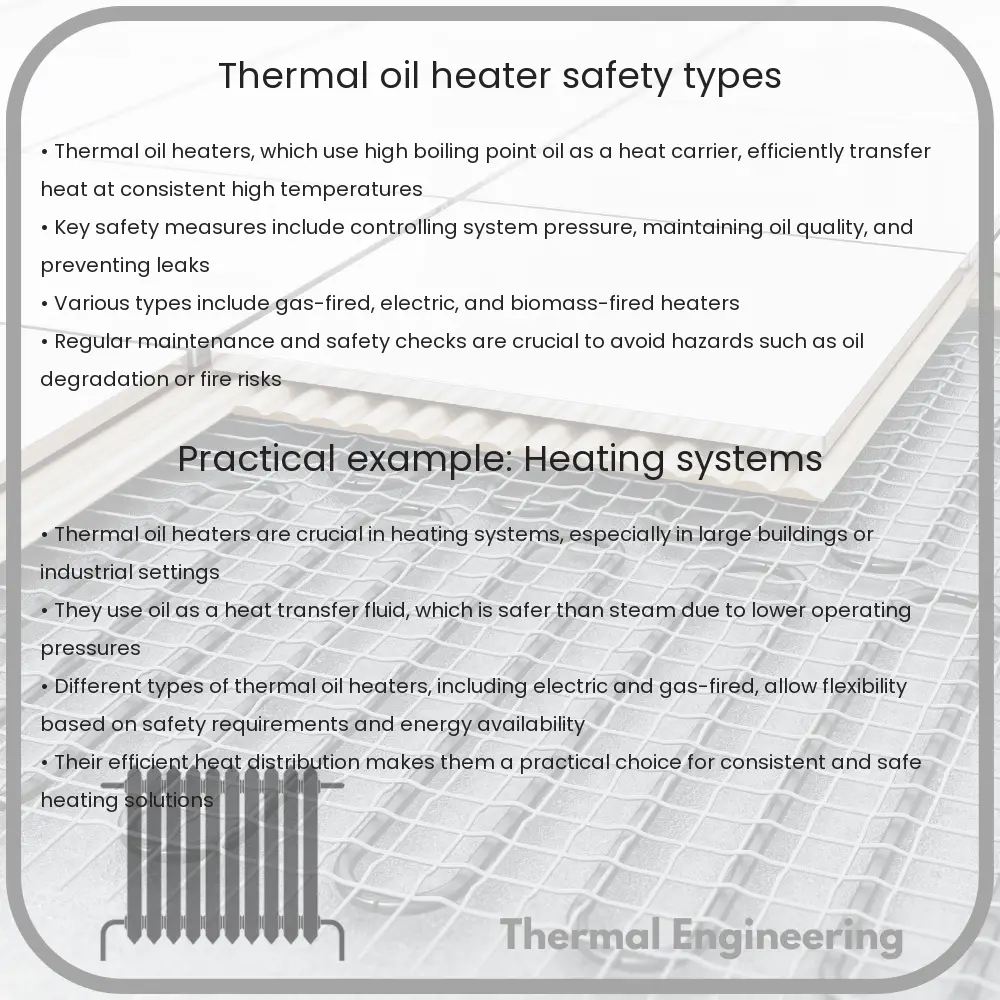Learn about thermal oil heaters, their types, safety features, and their importance in industrial heating.

Introduction to Thermal Oil Heaters
Thermal oil heaters, also known as thermal fluid heaters or hot oil heaters, are industrial heating equipment used to maintain high temperatures in various production processes. They use thermal oil as a heat-carrying medium, which allows for consistent, high-efficiency heat transfer without the need for high-pressure equipment. Thermal oil heaters are commonly used in industries such as chemical processing, oil and gas, and manufacturing.
Types of Thermal Oil Heaters
- Gas-fired Thermal Oil Heaters: These heaters use natural gas as the fuel source. They are known for their high efficiency and quick response to changes in heat demand.
- Electric Thermal Oil Heaters: Electric heaters use electric resistances to heat the oil, suitable for smaller applications or where emissions must be restricted. They are appreciated for their precise temperature control.
- Oil- or Coal-fired Thermal Oil Heaters: These types use liquid fuel or solid fuels like coal. They are generally used in locations where these fuels are readily available and economical.
- Biomass Thermal Oil Heaters: Biomass heaters utilize organic materials such as wood chips or pellets. They are environmentally friendly options but depend on the availability of biomass resources.
Safety Considerations in Thermal Oil Heaters
Safety is a paramount concern when dealing with high-temperature oil systems. Improper handling or lack of maintenance can lead to dangerous situations, such as hot oil leaks or fires. Below are essential safety features and practices associated with thermal oil heaters:
- Temperature Control: Overheating is one of the main risks in thermal oil heaters. It’s crucial to have precise temperature control systems to prevent surpassing the oil’s maximum safe working temperature.
- Pressure Relief Devices: Even though thermal oil systems operate at low pressure, it is vital to include pressure relief devices to protect against overpressure, which could occur due to thermal expansion of the oil.
- Regular Maintenance: Scheduling regular inspections and maintenance checks helps to identify potential issues like corrosion or oil degradation, which can significantly impact the system’s safety and efficiency.
- Fire Safety Measures: Installation of fire safety systems is essential, especially in areas susceptible to leaks. Fire-safe design features, automatic shut-offs, and adequate fire suppression systems are critical.
- Training of Personnel: Proper training of operational personnel is essential to ensure they understand the system’s operation and can identify and react promptly to any signs of malfunction or deterioration.
Conclusion
Thermal oil heaters are integral components of many industrial processes, providing high-efficiency heat transfer in a relatively safe and controllable way. Understanding the different types of thermal oil heaters and the essential safety precautions can help facilities ensure safe and efficient operation. With the correct maintenance and safety practices in place, thermal oil heaters can be a valuable tool for achieving necessary heat levels while minimizing risk.